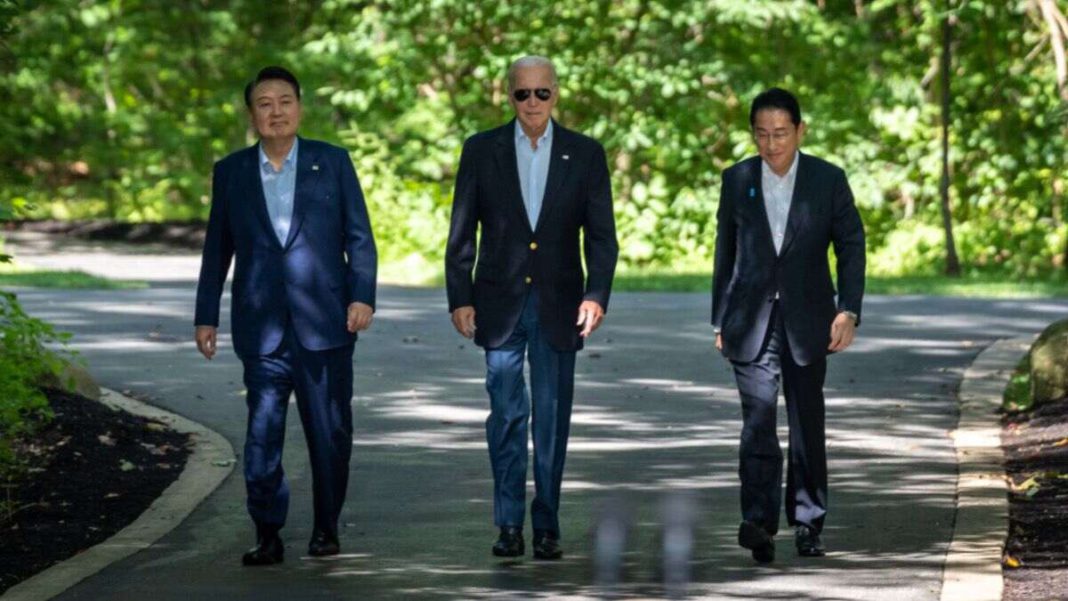UNITED STATES: At a historic summit near Washington, DC, the US, Japan, and South Korea’s presidents declared a new era of trilateral partnership and unveiled initiatives for further cooperation. President Joe Biden met with South Korea’s Yoon Suk-yeol and Japan’s Fumio Kishida for the first time at the Camp David presidential retreat.
South Korea and Japan have declared their commitment to uphold regional security, strengthen Indo-Pacific engagement, and promote common prosperity, amidst rising tensions between the two nations. Along with Pyongyang’s nuclear programme, the leaders criticized Beijing for its aggressive actions in the South China Sea. The declaration comes amid rising tensions between South Korea and Japan.
Biden praised Japan and South Korea’s efforts to resolve difficult issues between their nations and the US at a news conference. They unveiled initiatives to strengthen their alliance, including yearly military drills, improved communication channels, and a supply-chain early warning system.
Washington plans to initiate real-time data exchange on North Korean missile launches, establish a regional crisis hotline, and host yearly trilateral meetings. However, a formal security pact was not included in the summit announcements.
Since the Japanese colonisation of the Korean Peninsula from 1910 to 1945, South Korea and Japan have had tense relations. Washington is looking to take advantage of this détente.
Washington faces hostility from China, hindering its efforts to gain support from Asia-Pacific allies. The situation is heightened by concerns about the potential Chinese invasion of Taiwan and North Korea’s increasing missile tests. Cooperation is crucial to challenge China’s rise.
Seoul and Tokyo have experienced diplomatic successes, with Yoon becoming the first South Korean president to visit Japan in 12 years. Yoon emphasized the importance of Camp David as a historic site and pledged to strengthen regional security and prosperity.
The US State Department clarified that the upcoming conference is not intended to provoke Beijing, despite China’s influence over Camp David negotiations. National security adviser Jake Sullivan emphasized the conference’s support for a free, open, secure, and prosperous Indo-Pacific region, avoiding geopolitical competition.
Wang Wenbin stressed that no nation should put its own security interests ahead of those of other nations and the maintenance of peace and stability in the region. He warned against the creation of exclusionary groupings and military blocs in the Asia-Pacific.
Also Read: BRICS Summit Convenes in South Africa to Counter Western Dominance



